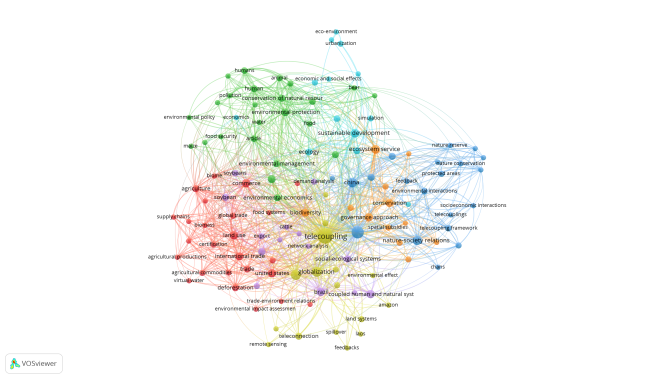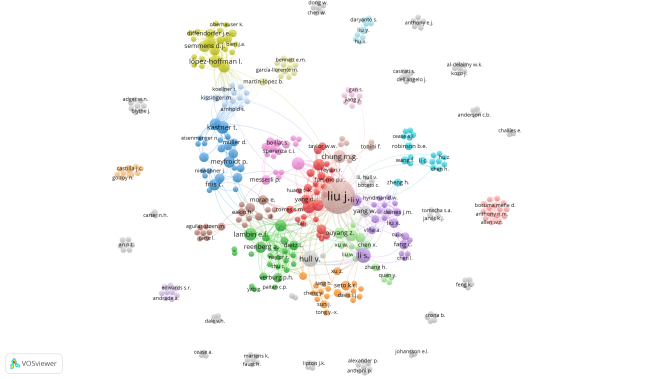By Johanna Coenen
A full year has passed since I started my PhD. Now it’s time to reflect on some experiences and lessons learned. Here are 10 practical tips, I would have liked to know from day one of my PhD journey. They can be useful for anybody currently doing a PhD or planning to do so.
1. Use a reference manager.
It’s obvious that doing a PhD requires a lot of reading. Yet, we easily lose track of what we have read in the past, or what we are planning to read in the future. Using a reference management software can support you in maintaining an overview of your literature. Personally, I use Mendeley. It forms the backbone of all my work. But many other reference management tools are available, such as Zotero, Citavi, or Endnote. The choice is yours.
A reference manager allows you to quickly add references to Word documents, but more importantly, you can save, group, tag, and annotate your literature. You can also share literature folders with colleagues. A particularly useful function is “watch folder”, which is an easy way to import new articles into your personal library.
2. Take notes.
This tip seems simple and self-evident. However, when searching the literature for particular information, we regularly come across concepts or definitions that we didn’t look for in the first place, but might find relevant for future work. For example, some articles provide a very good and precise overview of a certain field of literature. Other articles describe difficult concepts or methodologies very well. Or you find comprehensive figures or graphs. To remember valuable articles or text passages, set up a note-taking system that allows you to save these insights for later. Even though you might only use a fraction of all your notes, it can save valuable time when searching for relevant descriptions of theories, methods and cases. For this purpose, I started using Evernote, which works like a flashcard system or glossary. A simple notebook or other programs like OneNote might also do the job.
For example, I collected a multitude of different definitions of telecoupling or governance over time. Now I can always select the most appropriate one for presentations or texts. Taking notes simply protects you from the false assumption that “I will remember this argument or article later on”. If you’re like me and don’t have an extraordinary memory, make sure that you take notes on the wide variety of relevant concepts, theories, and ideas that you will discover during your PhD.
3. Use networks to get a general overview of the literature.
As a newcomer to the world of research, it is challenging to acquire a good overview of different streams of literature. Sometimes we search for influential scholars in a given field of research, and at other times, we try to understand how various research areas are connected.
A practical approach to addressing some of these questions can be the use of bibliometric analyses. Recently, I learned about a free and easy to use software that allows you to quickly construct bibliometric networks based on a Scopus search. You simply need to conduct a Scopus search with keywords of your choice, download the results in a CSV-file and import the file to the software called VosViewer. Examples from my research can be seen in two figures below. Within 15 minutes you will be able to better explore your field of research using network graphs.


4. Set up email alerts for newly published literature.
How to keep track of articles published in your area of interest? One way is to make use of email alert services which will inform you about the publication of new literature on a regular basis. For example, you can set up email notifications in Google Scholar or Scopus for particular keywords, such as “telecoupling”, “sustainability”, or whatever topic or theory is of interest to you. This way, you ensure that you stay up do date about scholarly discussions and trends.
5. Ask your colleagues for newsletter recommendations.
We not only want to stay informed about newly published literature, we are also interested in staying up-to-date about the announcement of special issues, conferences, and workshops. In later phases of our PhD, we might be interested in jobs and funding opportunities. Since there are useful newsletters on these issues in any field of work, I recommend browsing the web or asking colleagues for recommendations regarding valuable newsletter subscriptions.
6. Make sure other people can find out what you are working on.
As PhDs, we usually sit quietly in our office and conduct research. In comparison to our supervisors and senior colleagues, we don’t have a well-established network and are not widely recognized for our work. Thus, it is very important that you create some visibility of your research activities to the world that lies outside your office door. You can either use the website of your research institution, ResearchGate, LinkedIn or any other channel to ensure that other people can get a glimpse of your research interests and can potentially connect with you, while Twitter is the preferred communication and announcement platform of many academics.
7. Keep track of how much you work.
It’s not a secret that many PhD students work (too) much. Sometimes I ask myself where all the time has gone. At other times, I leave the office with a bad conscience if I have not managed to finish my tasks as planned – either because I procrastinated, assumed ever new tasks, encountered unexpected difficulties, chatted too much with colleagues, or was trapped in long meetings. In order to keep track of time, I write down how many hours I work every day, and I summarize what I did that day in 3-4 keywords. It only takes a few minutes and the primary goal is not excessive self-maximization or self-control. Instead, it’s a simple way to help you recognize when your work-life balance is seriously upset. It also allows you to shut down your computer on a Friday evening without asking yourself all weekend long whether you should maybe finish some more tasks and duties.
8. Engage in peer-reviews and writing retreats.
I think one of the greatest learning resources are not dusty books or lengthy publications, but our peers and colleagues. They can provide highly valuable feedback. Exchanging manuscript drafts with other PhD students, who work on related topics, and commenting on each other’s work can be a very fruitful and inspiring exercise. Besides making use of peer-reviews, you can also draw on peer pressure to keep you focused and motivated during a writing retreat. Find a quiet location, close your email program, and immerse yourself in some productive hours of writing.
9. Attend PhD defenses.
At some point in time, we will hopefully all defend our dissertations. One way to prepare for that day is to attend other PhD defenses. These occasions provide a precious opportunity to learn how to structure and compose a coherent dissertation. In addition, you get to know what kind of questions are posed by the jury. After attending several defenses, you may realize that in your field, certain types of questions are posed at almost every defense.
10. Check these miscellaneous websites
- We often try to visualize our data for presentations and publications, but don’t know which type of visualization works best for our particular purpose. On this website, you can explore examples of a wide range of different visualizations.
- If you want to print a website without useless ads and junk, or save it as a PDF file, you can use Printfriendly.
- ResearchGate is a widely used social network for researchers, which allows you to connect with other scientists, follow their activities and projects, and access publications.
- If you’re not a native English speaker, you will probably find yourself constantly searching for correct formulations, and the right use of prepositions and adverbs. If you want to check how certain words or phrases are generally used, you can visit the website Linguee, which provides you not only with bilingual translations, but also with a list of examples how the word or phrase has been used in other (con-)texts.
Originally published at coupled-itn.eu on 18 October 2019.

Thank you for this great list of tipps for early PhD students! This is very useful! And as someone who has recently finished a PhD I can say that I also applied most of the strategies that you recommend.
Just to add another resource for non-native English speakers: I’ve used a lot the Corpus of Contemporary American English (https://www.english-corpora.org/coca/). It doesn’t provide any translations but it provides a large number of examples of how words and phrases have been used in different types of literature in a better organized way than at Linguee and from a greater variety of sources.
LikeLiked by 2 people
As l am planning to begin my PhD in the near future, l found these tips very interesting and inspiring. Thank you so much for sharing your insights and experiences!
LikeLiked by 1 person
Fantastic share, thanks for the tips! I really like the vosviewer network suggestion for getting an overview of the literature in your area. ~Julie
LikeLiked by 1 person